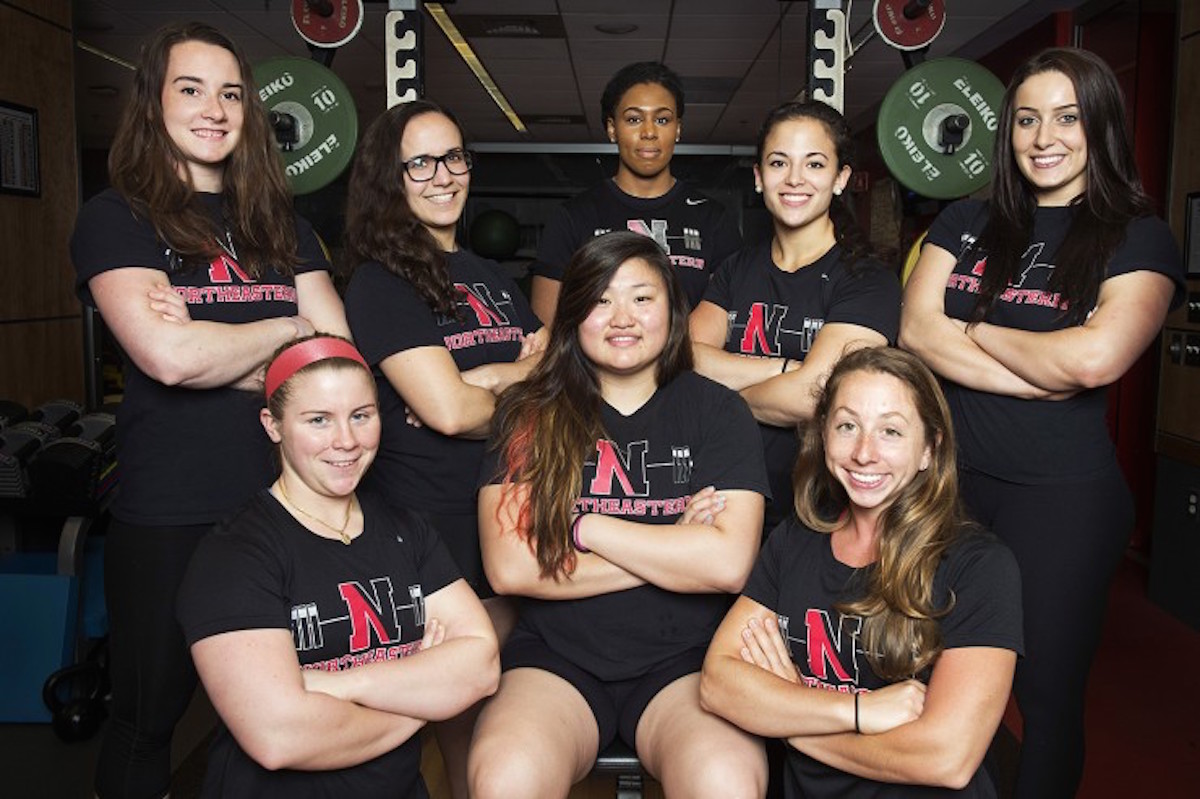The Northeastern Powerlifting Team Is Smashing Records—and Stereotypes

The Northeastern women’s powerlifting team/photo provided.
While everyone’s focus has been stuck on Rio, one Northeastern team grabbed the gold in an entirely different spot: the University Powerlifting World Cup in Belarus.
The women’s powerlifting club, which started only six years ago and had never before competed internationally, showed its strength in squats, benching, and deadlifts. Five of the seven women who competed won gold medals, beating out more than 50 female lifters from 22 colleges in 11 countries.
“It just kind of flourished into a greatness that no one expected,” says Binglei Zhou, a junior and the team’s public relations coordinator.
Back up. What is powerlifting, anyway? “A lot of people think it’s just like bodybuilding or lifting as much weight over your head as possible,” Zhou says. “It’s not. Powerlifting involves just three attempts at maximal weight in each set, with a focus on perfect form.”
Northeastern’s team perfects that form all season, practicing heavy sets, ab and shoulder workouts, and planks, in addition to following individual regimens from coach Michael Zawilinski, who’s also the head coach at USA Powerlifting.
Despite the club’s success, powerlifting is still heavily dominated by men—there are only a few women’s collegiate teams in the country, mostly in the South. As such, Zhou says most athletes find the team largely by accident. “Most of us start each season with basically zero experience,” she says. “Nobody has any idea what they’re getting themselves into, myself included.” Maybe so, but things have worked out pretty well for Zhou: She joined the team on a whim two years ago, and now holds the female collegiate deadlifting record, at 464 pounds.
Most women, then, are lured in by the image of powerful femininity, rather than familiarity with the sport. For Zhou, a lifelong athlete, powerlifting seemed like a new way to embrace her inner strength and inspire other girls.
“The amount of weight I’m lifting blows people away,” Zhou says. “When I tell people I’m doing 400-pound squats, they’re like, ‘What do you mean?’ Well, that’s exactly what I mean. What’s so shocking about it?”
For the team, defying stereotypes is par for the course. “We’re not, like, huge and muscle-y,” Zhou stresses. “The sport is not about being manly. We’re strong—it’s different.
“The team as a whole is super fashionable and girly,” she continues. “We like makeup and heels and we wear dresses. But it’s nice to also be able to move furniture or flip a huge tire wheel.”


